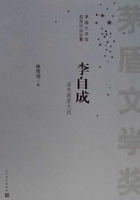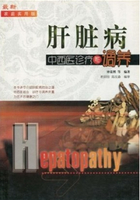I RESISITED all the way: a new thing for me, and a circumstance which greatly strengthened the bad opinion Bessie and Miss Abbot were disposed to entertain of me. The fact is, I was a trifle beside myself; or rather out of myself, as the French would say: I was conscious that a moment's mutiny had already rendered me liable to strange penalties, and, like any other rebel slave, I felt resolved, in my desperation, to go all lengths.
"Hold her arms, Miss Abbot: she's like a mad cat."
"For shame! for shame!" cried the lady's-maid. "What shocking conduct, Miss Eyre, to strike a young gentleman, your benefactress's son! Your young master."
"Master! How is he my master? Am I a servant?"
"No; you are less than a servant, for you do nothing for your keep. There, sit down, and think over your wickedness."
They had got me by this time into the apartment indicated by Mrs. Reed, and had thrust me upon a stool: my impulse was to rise from it like a spring; their two pair of hands arrested me instantly.
"If you don't sit still, you must be tied down," said Bessie. "Miss Abbot, lend me your garters; she would break mine directly."
Miss Abbot turned to divest a stout leg of the necessary ligature. This preparation for bonds, and the additional ignominy it inferred, took a little of the excitement out of me.
"Don't take them off," I cried; "I will not stir."
In guarantee whereof, I attached myself to my seat by my hands.
"Mind you don't," said Bessie; and when she had ascertained that I was really subsiding, she loosened her hold of me; then she and Miss Abbot stood with folded arms, looking darkly and doubtfully on my face, as incredulous of my sanity.
"She never did so before," at last said Bessie, turning to the Abigail.
"But it was always in her," was the reply. "I've told Missis often my opinion about the child, and Missis agreed with me. She's an underhand little thing: I never saw a girl of her age with so much cover."
Bessie answered not; but ere long, addressing me, she said—"You ought to be aware, Miss, that you are under obligations to Mrs. Reed: she keeps you: if she were to turn you off, you would have to go to the poorhouse."
I had nothing to say to these words: they were not new to me: my very first recollections of existence included hints of the same kind. This reproach of my dependence had become a vague sing-song in my ear: very painful and crushing, but only half intelligible. Miss Abbot joined in—
"And you ought not to think yourself on an equality with the Misses Reed and Master Reed, because Missis kindly allows you to be brought up with them. They will have a great deal of money, and you will have none: it is your place to be humble, and to try to make yourself agreeable to them."
"What we tell you is for your good," added Bessie, in no harsh voice, "you should try to be useful and pleasant, then, perhaps, you would have a home here; but if you become passionate and rude, Missis will send you away, I am sure."
"Besides," said Miss Abbot, "God will punish her: He might strike her dead in the midst of her tantrums, and then where would she go? Come, Bessie, we will leave her: I wouldn't have her heart for anything. Say your prayers, Miss Eyre, when you are by yourself; for if you don't repent, something bad might be permitted to come down the chimney and fetch you away."
They went, shutting the door, and locking it behind them.
The red-room was a square chamber, very seldom slept in, I might say never, indeed, unless when a chance influx of visitors at Gateshead Hall rendered it necessary to turn to account all the accommodation it contained: yet it was one of the largest and stateliest chambers in the mansion. A bed supported on massive pillars of mahogany, hung with curtains of deep red damask, stood out like a tabernacle in the centre; the two large windows, with their blinds always drawn down, were half shrouded in festoons and falls of similar drapery; the carpet was red; the table at the foot of the bed was covered with a crimson cloth; the walls were a soft fawn colour with a blush of pink in it; the wardrobe, the toilet-table, the chairs were of darkly polished old mahogany. Out of these deep surrounding shades rose high, and glared white, the piled- up mattresses and pillows of the bed, spread with a snowy Marseilles counterpane. Scarcely less prominent was an ample cushioned easy-chair near the head of the bed, also white, with a footstool before it; and looking, as I thought, like a pale throne.
This room was chill, because it seldom had a fire; it was silent, because remote from the nursery and kitchen; solemn, because it was known to be so seldom entered. The house-maid alone came here on Saturdays, to wipe from the mirrors and the furniture a week's quiet dust: and Mrs. Reed herself, at far intervals, visited it to review the contents of a certain secret drawer in the wardrobe, where were stored divers parchments, her jewel-casket, and a miniature of her deceased husband; and in those last words lies the secret of the red-room—the spell which kept it so lonely in spite of its grandeur.
Mr. Reed had been dead nine years: it was in this chamber he breathed his last; here he lay in state; hence his coffin was borne by the undertaker's men; and, since that day, a sense of dreary consecration had guarded it from frequent intrusion.
My seat, to which Bessie and the bitter Miss Abbot had left me riveted, was a low ottoman near the marble chimney-piece; the bed rose before me; to my right hand there was the high, dark wardrobe, with subdued, broken reflections varying the gloss of its panels; to my left were the muffled windows; a great looking-glass between them repeated the vacant majesty of the bed and room. I was not quite sure whether they had locked the door; and when I dared move, I got up and went to see. Alas! yes: no jail was ever more secure. Returning, I had to cross before the looking- glass; my fascinated glance involuntarily explored the depth it revealed. All looked colder and darker in that visionary hollow than in reality: and the strange little figure there gazing at me, with a white face and arms specking the gloom, and glittering eyes of fear moving where all else was still, had the effect of a real spirit: I thought it like one of the tiny phantoms, half fairy, half imp, Bessie's evening stories represented as coming out of lone, ferny dells in moors, and appearing before the eyes of belated travellers. I returned to my stool.
Superstition was with me at that moment; but it was not yet her hour for complete victory: my blood was still warm; the mood of the revolted slave was still bracing me with its bitter vigour; I had to stem a rapid rush of retrospective thought before I quailed to the dismal present.
All John Reed's violent tyrannies, all his sisters' proud indifference, all his mother's aversion, all the servants' partiality, turned up in my disturbed mind like a dark deposit in a turbid well. Why was I always suffering, always browbeaten, always accused, for ever condemned? Why could I never please? Why was it useless to try to win any one's favour? Eliza, who was headstrong and selfish, was respected. Georgiana, who had a spoiled temper, a very acrid spite, a captious and insolent carriage, was universally indulged. Her beauty, her pink cheeks and golden curls, seemed to give delight to all who looked at her, and to purchase indemnity for every fault. John no one thwarted, much less punished; though he twisted the necks of the pigeons, killed the little pea-chicks, set the dogs at the sheep, stripped the hothouse vines of their fruit, and broke the buds off the choicest plants in the conservatory: he called his mother "old girl," too; sometimes reviled her for her dark skin, similar to his own; bluntly disregarded her wishes; not unfrequently tore and spoiled her silk attire; and he was still "her own darling." I dared commit no fault: I strove to fulfill every duty; and I was termed naughty and tiresome, sullen and sneaking, from morning to noon, and from noon to night.
My head still ached and bled with the blow and fall I had received: no one had reproved John for wantonly striking me; and because I had turned against him to avert farther irrational violence, I was loaded with general opprobrium.
"Unjust!—unjust!" said my reason, forced by the agonizing stimulus into precocious though transitory power: and Resolve, equally wrought up, instigated some strange expedient to achieve escape from insupportable oppression—as running away, or, if that could not be effected, never eating or drinking more, and letting myself die.
What a consternation of soul was mine that dreary afternoon! How all my brain was in tumult, and all my heart in insurrection! Yet in what darkness, what dense ignorance, was the mental battle fought! I could not answer the ceaseless inward question—why I thus suffered; now, at the distance of—I will not say how many years, I see it clearly.
I was a discord in Gateshead Hall: I was like nobody there; I had nothing in harmony with Mrs. Reed or her children, or her chosen vassalage. If they did not love me, in fact, as little did I love them. They were not bound to regard with affection a thing that could not sympathize with one amongst them; a heterogeneous thing, opposed to them in temperament, in capacity, in propensities; a useless thing, incapable of serving their interest, or adding to their pleasure; a noxious thing, cherishing the germs of indignation at their treatment, of contempt of their judgment. I know that had I been a sanguine, brilliant, careless, exacting, handsome, romping child—though equally dependent and friendless—Mrs. Reed would have endured my presence more complacently; her children would have entertained for me more of the cordiality of fellow-feeling; the servants would have been less prone to make me the scapegoat of the nursery.
Daylight began to forsake the red-room; it was past four o'clock, and the beclouded afternoon was tending to drear twilight. I heard the rain still beating continuously on the staircase window, and the wind howling in the grove behind the hall; I grew by degrees cold as a stone, and then my courage sank. My habitual mood of humiliation, self-doubt, forlorn depression, fell damp on the embers of my decaying ire. All said I was wicked, and perhaps I might be so; what thought had I been but just conceiving of starving myself to death? That certainly was a crime: and was I fit to die? Or was the vault under the chancel of Gateshead Church an inviting bourne? In such vault I had been told did Mr. Reed lie buried; and led by this thought to recall his idea, I dwelt on it with gathering dread. I could not remember him; but I knew that he was my own uncle—my mother's brother—that he had taken me when a parentless infant to his house; and that in his last moments he had required a promise of Mrs. Reed that she would rear and maintain me as one of her own children. Mrs. Reed probably considered she had kept this promise; and so she had, I dare say, as well as her nature would permit her; but how could she really like an interloper not of her race, and unconnected with her, after her husband's death, by any tie? It must have been most irksome to find herself bound by a hard-wrung pledge to stand in the stead of a parent to a strange child she could not love, and to see an uncongenial alien permanently intruded on her own family group.
A singular notion dawned upon me. I doubted not—never doubted—that if Mr. Reed had been alive he would have treated me kindly; and now, as I sat looking at the white bed and overshadowed walls—occasionally also turning a fascinated eye towards the dimly gleaning mirror—I began to recall what I had heard of dead men, troubled in their graves by the violation of their last wishes, revisiting the earth to punish the perjured and avenge the oppressed; and I thought Mr. Reed's spirit, harassed by the wrongs of his sister's child, might quit its abode—whether in the church vault or in the unknown world of the departed—and rise before me in this chamber. I wiped my tears and hushed my sobs, fearful lest any sign of violent grief might waken a preternatural voice to comfort me, or elicit from the gloom some haloed face, bending over me with strange pity. This idea, consolatory in theory, I felt would be terrible if realized: with all my might I endeavoured to stifle it—I endeavoured to be firm. Shaking my hair from my eyes, I lifted my head and tried to look boldly round the dark room; at this moment a light gleamed on the wall. Was it, I asked myself, a ray from the moon penetrating some aperture in the blind? No; moonlight was still, and this stirred; while I gazed, it glided up to the ceiling and quivered over my head. I can now conjecture readily that this streak of light was, in all likelihood, a gleam from a lantern carried by some one across the lawn: but then, prepared as my mind was for horror, shaken as my nerves were by agitation, I thought the swift darting beam was a herald of some coming vision from another world. My heart beat thick, my head grew hot; a sound filled my ears, which I deemed the rushing of wings; something seemed near me; I was oppressed, suffocated: endurance broke down; I rushed to the door and shook the lock in desperate effort. Steps came running along the outer passage; the key turned, Bessie and Abbot entered.
"Miss Eyre, are you ill?" said Bessie.
"What a dreadful noise! it went quite through me!" exclaimed Abbot.
"Take me out! Let me go into the nursery!" was my cry.
"What for? Are you hurt? Have you seen something?" again demanded Bessie.
"Oh! I saw a light, and I thought a ghost would come." I had now got hold of Bessie's hand, and she did not snatch it from me.
"She has screamed out on purpose," declared Abbot, in some disgust. "And what a scream! If she had been in great pain one would have excused it, but she only wanted to bring us all here: I know her naughty tricks."
"What is all this?" demanded another voice peremptorily; and Mrs. Reed came along the corridor, her cap flying wide, her gown rustling stormily. "Abbot and Bessie, I believe I gave orders that Jane Eyre should be left in the red-room till I came to her myself."
"Miss Jane screamed so loud, ma'am," pleaded Bessie.
"Let her go," was the only answer. "Loose Bessie's hand, child: you cannot succeed in getting out by these means, be assured. I abhor artifice, particularly in children; it is my duty to show you that tricks will not answer: you will now stay here an hour longer, and it is only on condition of perfect submission and stillness that I shall liberate you then."
"O aunt! have pity! Forgive me! I cannot endure it—let me be punished some other way! I shall be killed if—"
"Silence! This violence is all most repulsive:" and so, no doubt, she felt it. I was a precocious actress in her eyes; she sincerely looked on me as a compound of virulent passions, mean spirit, and dangerous duplicity.
Bessie and Abbot having retreated, Mrs. Reed, impatient of my now frantic anguish and wild sobs, abruptly thrust me back and locked me in, without farther parley. I heard her sweeping away; and soon after she was gone, I suppose I had a species of fit: unconsciousness closed the scene.















